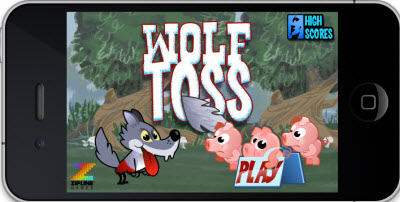
Game developers’ resources are getting stretched thin adapting games to run on all the different types of mobile platforms, and quite a few startups are trying to solve the problem, making the market crowded. But the fact that there are so many suggests that no one is solving it perfectly yet.
[aditude-amp id="flyingcarpet" targeting='{"env":"staging","page_type":"article","post_id":252304,"post_type":"story","post_chan":"none","tags":null,"ai":false,"category":"none","all_categories":"business,games,mobile,","session":"C"}']Zipline’s technology, called Moai Game Development Platform, targets professional game developers and has two parts. (Moai is named after the human face carvings on Easter Island). One is a server-based technology that handles back-end processing tasks such as cloud hosting for games. The other is a software development kit built around the Lua game scripting language. The whole solution uses an open-source development platform that works well with two-dimensional games.
AI Weekly
The must-read newsletter for AI and Big Data industry written by Khari Johnson, Kyle Wiggers, and Seth Colaner.
Included with VentureBeat Insider and VentureBeat VIP memberships.
While Zipline is just getting started, it has one high-profile convert. Jordan Weisman, chief executive of game startup Smith & Tinker and a renowned game developer, plans to use Moai to make a mobile game. Moai games are already in production at multiple unnamed game studios, and Zipline is doing two games of its own to show off the platform.
That’s not bad for a company that was formed in December.
Hooper said that game developers have been fretting about the challenge of building great mobile games and extending them with a cloud-based backend system. Moai lets developers focus on their unique game play and write code in Lua from start to finish instead of switching between multiple languages and architectures.
Developers could use Heroku, but most game developers aren’t familiar with the Ruby development process it uses. And many solutions game developers create themselves don’t work properly when a game becomes popular.
Hooper said that Zipline used its own tools to create a physics-based puzzle game called Wolf Toss. Within a week it was running on the iPhone and it ran on Android a couple of more days after that. That’s a pretty fast development cycle and shows that the platform is easy to use, Hooper said.
[aditude-amp id="medium1" targeting='{"env":"staging","page_type":"article","post_id":252304,"post_type":"story","post_chan":"none","tags":null,"ai":false,"category":"none","all_categories":"business,games,mobile,","session":"C"}']
Zipline’s founders include veterans from Nintendo, Groundspeak and Amaze Entertainment. Co-founder Patrick Meehan is the chief technology officer. The company has raised an undisclosed amount of money from investors including Founders Co-Op and Benaroya Capital. Zipline has 10 employees.
VentureBeat's mission is to be a digital town square for technical decision-makers to gain knowledge about transformative enterprise technology and transact. Learn More
